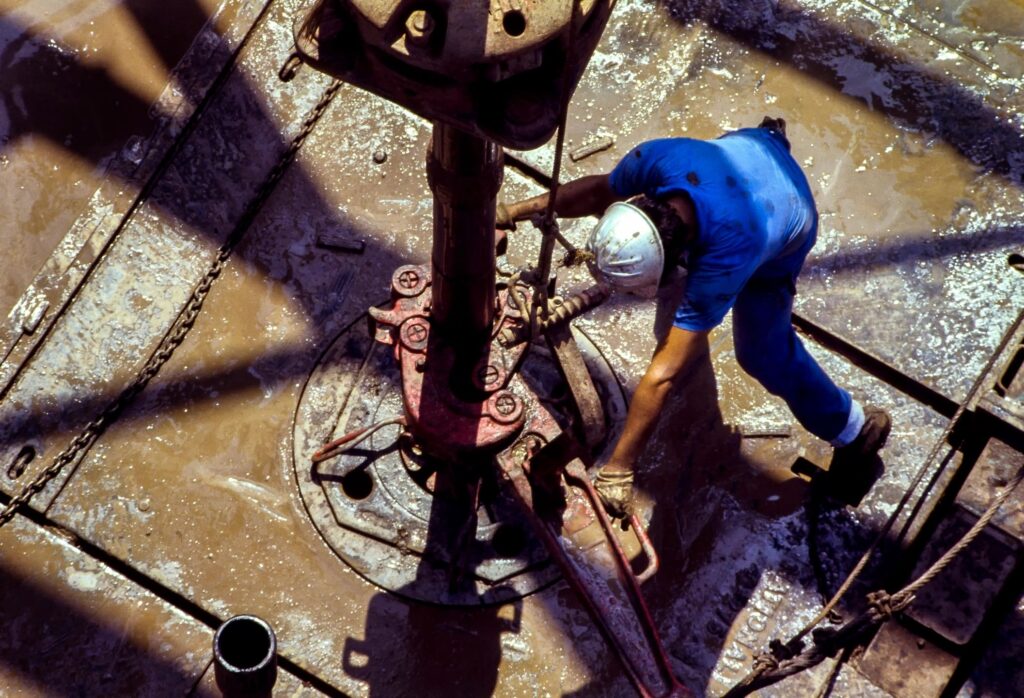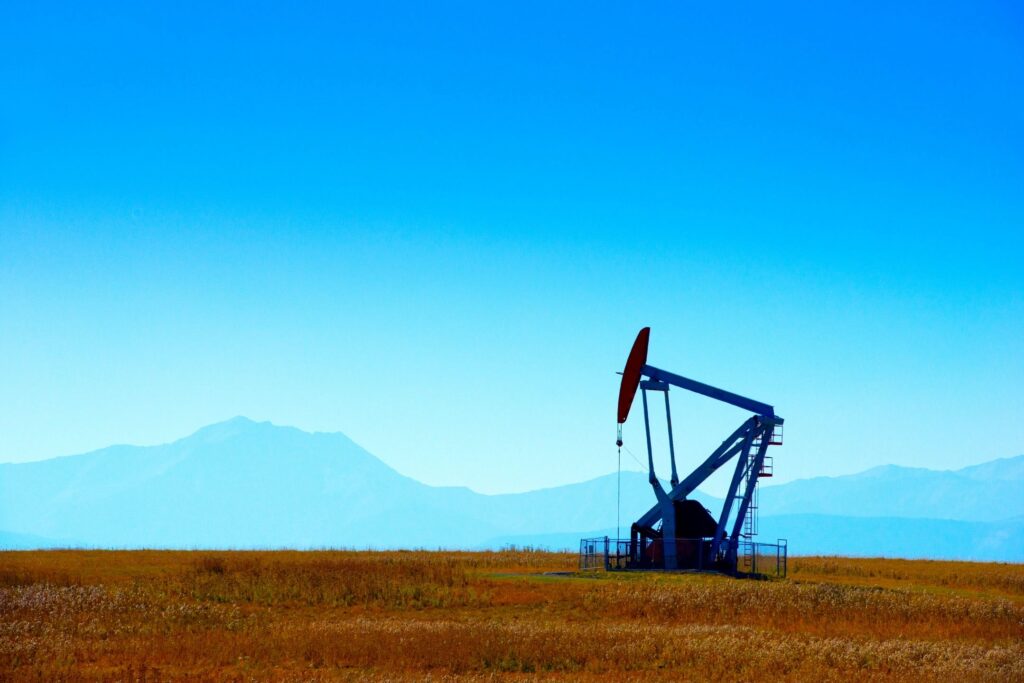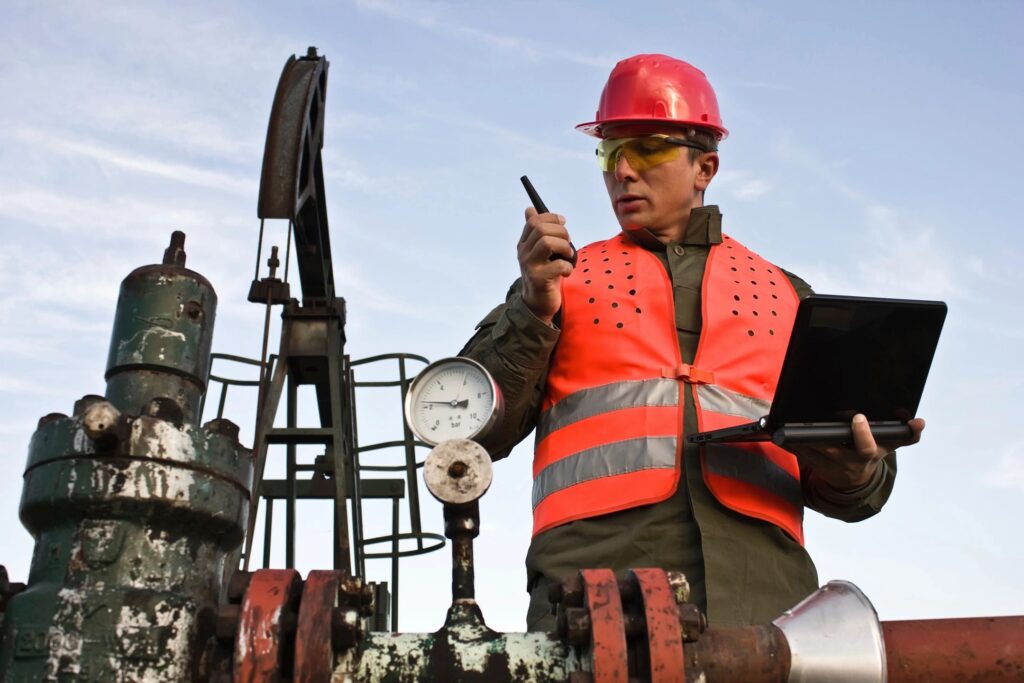Overwhelming Support for Reform as Oil and Gas Bonding Hearing Begins Monday



Organization Press Release – From the Western Environmental Law Center.
With $1.6 Billion in Liabilities at Stake, Polling Shows New Mexicans Back Common-sense Reform to Protect communities
Santa Fe, NM – A new statewide poll shows nearly 9 in 10 New Mexicans (89%) support requiring oil and gas corporations to pay the full cost of plugging wells. This overwhelming support sets the stage for a vital public hearing beginning October 20 at the New Mexico Oil Conservation Commission (OCC).
The hearing, scheduled to run through Nov. 7, will consider Case No. 24683, a proposed suite of rule changes designed to prevent oil and gas wells from becoming abandoned without cleanup (direct testimony available here).
These common-sense updates would ensure oil and gas corporations post adequate financial assurance—i.e. bonds—to cover the cost of cleanup before they are allowed to drill in high-risk situations, tighten well transfer rules to protect against risk, and strengthen rules to require timely cleanup instead of allowing wells to linger indefinitely in inactive status.
“For too long, New Mexicans have paid the price when oil and gas corporations don’t clean up after themselves,” said Tannis Fox, senior attorney with the Western Environmental Law Center. “This rule change is about fairness. It’s about protecting our water, our land, and our communities—and making sure the polluters, not the public, pay the cleanup bill.”
The proposed rules to prevent more abandoned wells are supported by a diverse coalition of Tribal leaders, financial experts, frontline community members, faith leaders, and environmental organizations across New Mexico.
State agencies that oversee oil and gas development, such as the State Land Office and the Oil Conservation Division (OCD), support the proposed changes.
90% Say Corporations Must Pay for Cleanup to Protect Drinking Water and Communities.
The new polling, conducted in September 2025, found near-universal agreement among New Mexicans that oil and gas corporations should be financially responsible for cleaning up their wells.
Ninety-one percent of respondents said corporations must pay for cleanup and 90% said it’s essential to protect drinking water and community health.
Support was consistent across party lines and regions, underscoring that cleanup accountability is a shared value among New Mexicans.
“It is becoming increasingly evident that the true costs of reclamation, plugging and clean up of oil and gas wells in Northwestern New Mexico are much higher than current bonding. This rulemaking reflects the financial investment needed to restore polluted landscapes and holding industry responsible for closure at oil and gas facilities,” said Mike Eisenfeld, energy and climate program manager at San Juan Citizens Alliance.
The parties petitioning for the proposed rules include Citizens Caring for the Future, Conservation Voters New Mexico Education Fund, Diné C.A.R.E., Earthworks, Naeva, New Mexico Interfaith Power and Light, San Juan Citizens Alliance, Rio Grande Chapter of the Sierra Club, and WildEarth Guardians, represented by the Western Environmental Law Center.
Together, these organizations are supporting rule changes that will:
- Update bonding requirements to $150,000 per well for inactive and low-producing marginal wells, more closely aligning with OCD’s actual plugging costs,
- Require operators with portfolios containing more than 15% inactive and/or marginal wells to post single-well bonding for all their wells, reducing risk to public funds,
- Guard against poorly funded or noncompliant operators taking on wells–a common path to well abandonment–with more stringent transfer rules,
- Tighten rules for inactive, non-producing wells to require wells to show they will return to production in the near future and cap inactive wells at 8 years to avoid wells lingering indefinitely without cleanup.
State data show New Mexico currently faces between $700 million and $1.6 billion in projected oil and gas well cleanup liabilities. Yet under existing rules, corporations can post bonds for a fraction of the real cleanup cost, which averages $163,000 per well for the state to plug.
The June 2025 Legislative Finance Committee report includes Oil Conservation Division data that show 700 wells are currently identified for state-funded plugging, and another 4,400 across the state could become abandoned and left for public agencies and funds to plug if bonding doesn’t keep pace with cleanup costs.
Over the past five years, more than $100 million in public money—from both state and federal sources–has been used to plug and reclaim abandoned wells.
When bonds fall short or a company goes bankrupt and abandons its cleanup responsibilities, the public is left covering the gap—diverting public dollars from schools, infrastructure, and clean energy investments.
How the Public Can Participate:
New Mexicans can submit public comments or sign up to testify in the hearing, which will be held virtually and in person.
Public comment will be heard from 4-5pm on Oct. 20 and from 9-10 am and 4-5 pm for the remainder of the hearing. Written comments can also be submitted via email. Find the details in the hearing public notice.
“Asking a company to clean up its own mess is not complicated and should not be controversial. You do some math, post the bond that’s needed, and voilà—the public isn’t stuck with the bill,” said Melissa Troutman, climate & health advocate with WildEarth Guardians.
Comments from Additional Parties and Supporters:
“As a Carlsbad resident, I’ve seen firsthand how complicated and costly it can be when something goes wrong—like with the brine well sinkhole. That situation took years and a lot of public funding to resolve. I think it’s fair to make sure corporations who are profiting from our natural resources have the right safeguards in place to take care of their future responsibilities. Updating the bonding rules is just a practical step to help prevent future problems and protect our town and our water.” — Haley Jones, organizer, Citizens Caring for the Future
“‘Clean up, clean up, everybody clean up.’ Children know this: If you make a mess, you clean it up. You don’t force someone else to do it for you. Large, greedy, out-of-state oil and gas corporations extract billions of dollars in profits in New Mexico while polluting the land, water, air and communities. It’s time for them to pay to clean up their mess.” — Douglas Meiklejohn, water quality & land restoration advocate at Conservation Voters New Mexico Education Fund
“It is about time oil and gas corporations be held accountable and provide the full cost of cleanup that they have long owed to our communities. They can no longer put this off onto the state and other agencies, leaving our communities vulnerable and without the means to address pollution and damage to our shared lands, water, and air. This rulemaking is a proactive step that is much needed for our collective communities and can benefit our tribal communities in New Mexico, including adjacent territory in northwest New Mexico in the checkerboard region of the eastern Navajo Nation.” — Robyn Jackson, executive director, Diné C.A.R.E.
“We have documented methane gas and toxic chemicals leaking from low producing, inactive, and temporarily abandoned oil and gas sites all across New Mexico. Strengthening bonding will save lives and protect our air and water from these polluting sites that should be cleaned up by the companies who made the mess.” — Andrew Forkes-Gudmundson, senior manager for state policy, Earthworks
“The greatest threat to the health of New Mexicans is the continued failure of state leaders to keep the oil and gas industry to its wonderful-sounding promises of being ‘clean.’ If they will not be responsible for the messes they create and the harms they cause our people through their pollution, then It’s time the people of New Mexico make them do so,and to restore nature. Urgent, state-wide changes must be made including the proposed new rules, which will lead to a fairer and healthier New Mexico.” — Charles Goodmacher, Healthy Climate New Mexico policy advisor
“For too long, New Mexico families have carried the health and cost burden of pollution while oil and gas corporations walk away from their responsibility. This rule is about accountability and justice — making sure that our children’s air, water, and future are protected, and that polluters, not the public, pay to clean up their mess.” — Giovanna Rossi, Moms Clean Air Force
“As people of faith, we are called to care for creation and to act with justice. It is morally unacceptable to allow corporations to profit from our land while leaving behind pollution that harms our communities, future generations and the sacred trust of land, water and air. Everyone must take responsibility and accountability for ethical actions like stronger bonding rules which are vital for the common good. We all must care for what we Love and that means ensuring those who drill also take responsibility for healing the damage they cause.” — Sister Joan Brown, osf, community advocate, New Mexico and El Paso Interfaith Power and Light
“This rule is about restoring balance and accountability. For too long, oil and gas operators have been allowed to drill without posting bonds that reflect the true costs of plugging and cleaning up. These rules are important for health and safety, and New Mexicans shouldn’t have to pay to plug corporations’ polluting oil and gas wells. These reforms bring the law in line with common sense: If you drill it, you clean it, and we hope our state decision-makers do what is in the best interest of New Mexicans.” — Miya King-Flaherty, program manager, Sierra Club Rio Grande Chapter
“Elected officials want to safeguard their communities’ air, land, and water; bring quality jobs to New Mexico; and ensure oil and gas companies—not their constituents—pay to properly plug wells. Updating financial assurance policy offers a workable, commonsense solution that simultaneously takes the burden of cleanup off taxpayers, protects community health, and provides accountability for polluters.” — Liane Jollon, executive director, Western Leaders Network
The Western Environmental Law Center uses the power of the law to foster thriving, resilient western U.S. lands, waters, wildlife, and communities in the face of a changing climate.